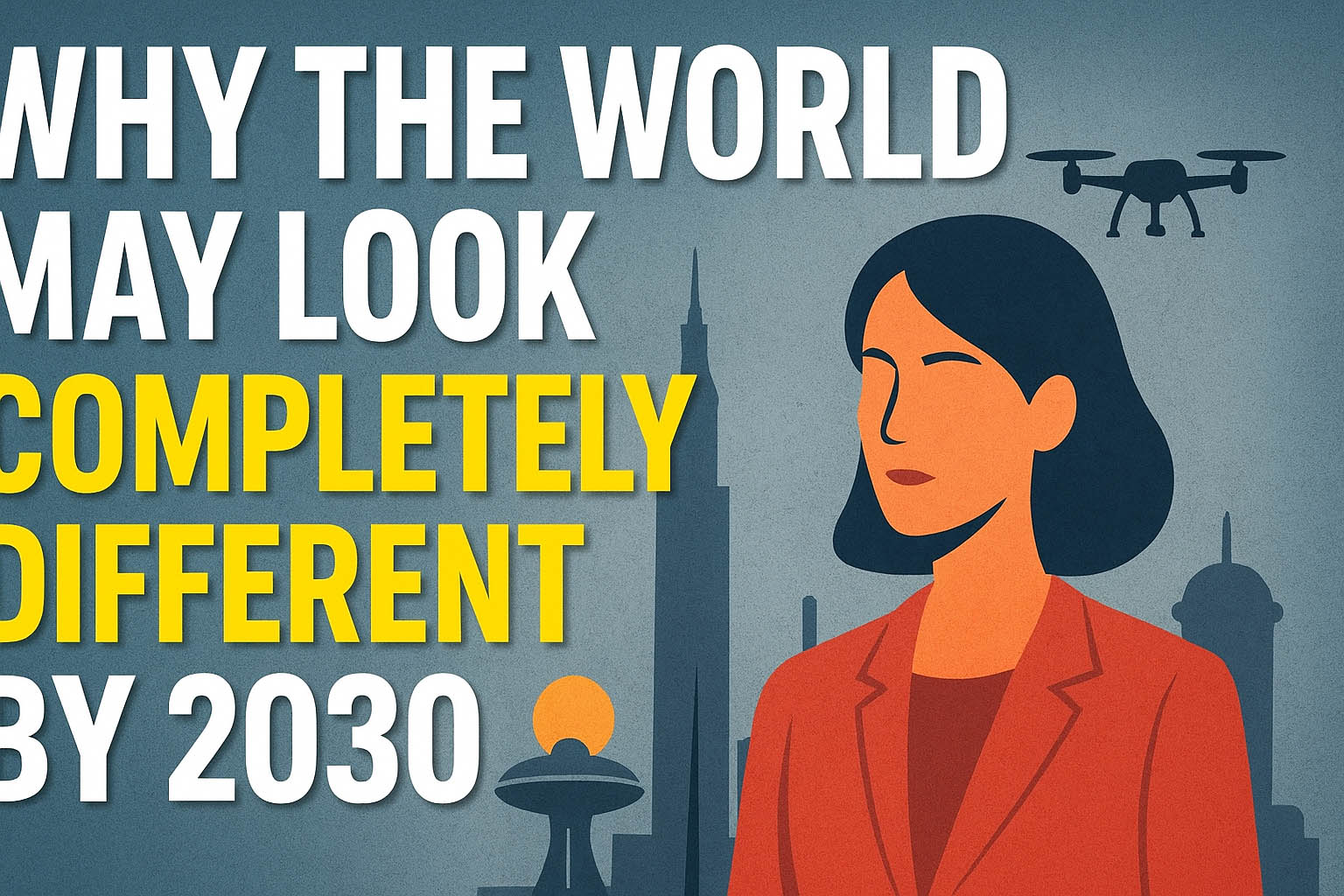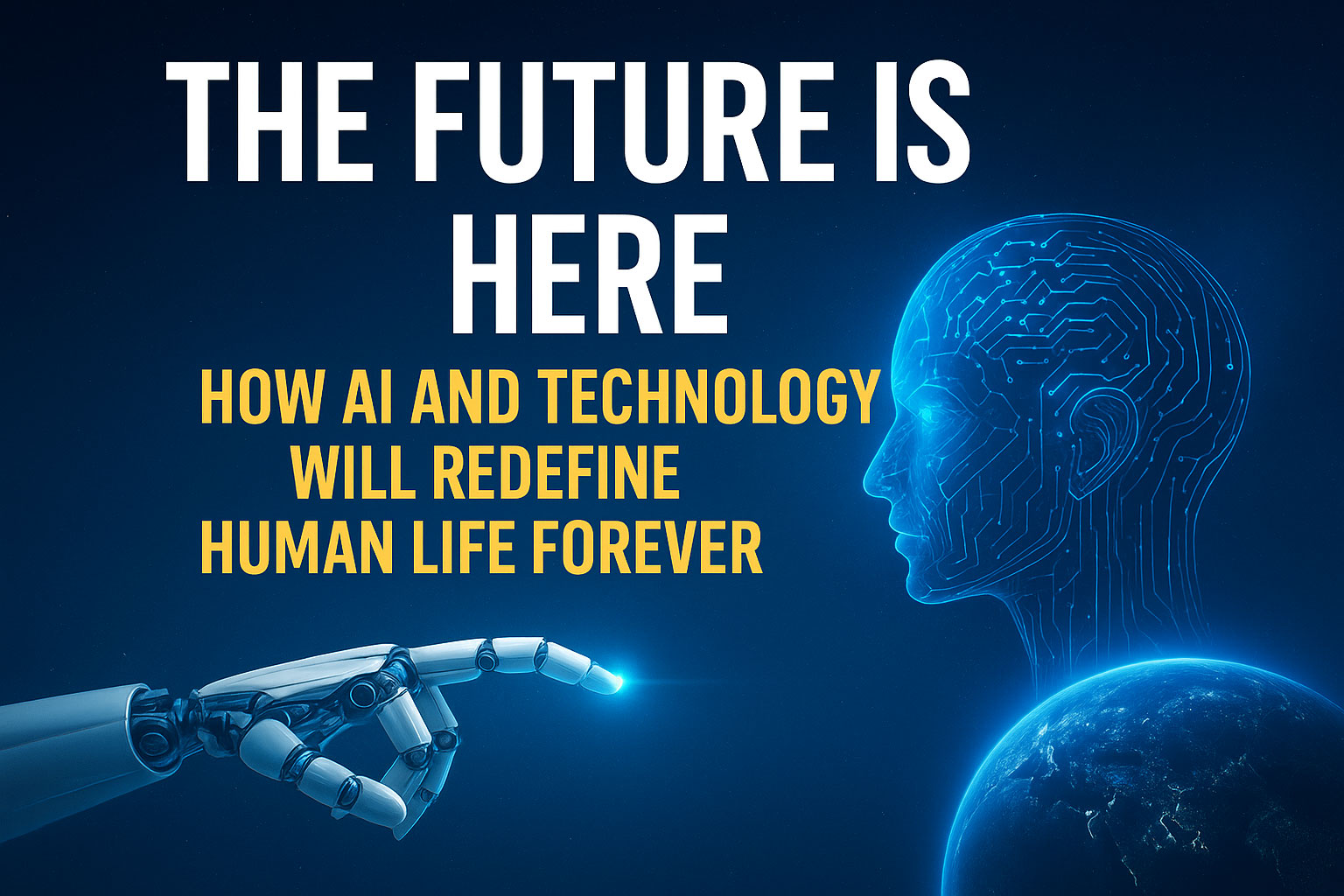The world has always evolved, but the pace of change in the 21st century is unlike anything humanity has ever seen before. By 2030, we may live in a reality so different from today that many of our current lifestyles, jobs, and habits could feel outdated. Driven by rapid technological progress, climate change, shifting global powers, and social transformations, the next decade promises to reshape the way we live, work, and think.
1. Technology Will Redefine Daily Life
Technology is advancing faster than our ability to adapt. By 2030, artificial intelligence (AI), robotics, and automation are expected to handle much of the work humans do today. From self-driving cars on city streets to robotic assistants in homes, machines will become deeply integrated into everyday life. AI doctors may diagnose diseases more accurately than humans, while AI teachers could provide personalized education for millions of students at once.
Moreover, the rise of virtual reality (VR) and the metaverse will change how we socialize, shop, and even attend events. Instead of traveling across the world for a meeting or concert, people may simply “log in” to an immersive 3D environment. The internet will no longer just be a tool we use—it will become a place we live.
2. The Future of Work
The workplace of 2030 may look unrecognizable compared to today. Many traditional jobs could disappear, replaced by new ones we cannot yet imagine. Experts predict that around 40% of current jobs could be automated by the end of the decade. While this may sound alarming, history shows that every wave of innovation creates new opportunities.
Instead of working long hours in offices, more people may choose freelance or remote work supported by global digital platforms. The focus will shift from “working for survival” to “working for creativity and passion.” Countries and companies may experiment with universal basic income (UBI) to ensure people still thrive in an automated economy.
3. Climate Change and Sustainability
Perhaps the biggest factor that will shape 2030 is climate change. Rising temperatures, unpredictable weather, and natural disasters will force nations to take stronger action. Renewable energy sources like solar and wind will likely dominate global energy markets, while electric vehicles will replace petrol cars in most developed countries.
Cities will transform into “smart cities,” powered by clean energy and designed for sustainability. By 2030, many countries may ban single-use plastics and enforce stricter rules on industries. Agriculture will also shift dramatically, with lab-grown meat and vertical farming becoming mainstream to reduce pressure on natural resources.
4. Shifts in Global Power
The balance of global power is also changing. The 21st century may no longer be defined by a single superpower but by multipolar leadership. Countries like China, India, and emerging African economies are expected to play a major role in global politics and trade.
This shift could lead to more cooperation—or more competition. The world of 2030 might witness new alliances, new rivalries, and possibly even new global organizations created to handle challenges like cybersecurity, climate migration, and space exploration.
5. Space Exploration and Beyond
By 2030, humanity may also extend its reach beyond Earth. Private companies like SpaceX, Blue Origin, and government agencies like NASA are already working on colonizing the Moon and Mars. Space tourism could become a reality for the wealthy, while asteroid mining may open a new chapter of resources for Earth.
If successful, space exploration may redefine what it means to be human—transforming us into a multi-planetary species. This leap could be as historic as the industrial revolution or the internet boom.
6. Society and Culture
Society itself will also transform. The younger generation, especially Gen Z and Gen Alpha, will dominate the workforce and culture by 2030. Their values—such as inclusivity, environmental responsibility, and digital-first lifestyles—will shape governments, businesses, and education.
Traditional education systems may evolve into lifelong learning models, where people keep reskilling to stay relevant in a fast-changing world. At the same time, diversity and equality will gain more importance, breaking barriers of race, gender, and geography.
Conclusion
By 2030, the world may look completely different, but change should not be feared. It should be embraced. Humanity has always adapted, and each transformation has brought new opportunities for growth. The next decade will be a test of how well we can balance technology with humanity, progress with sustainability, and ambition with responsibility. If we succeed, the world of 2030 could be more connected, advanced, and hopeful than ever before.



